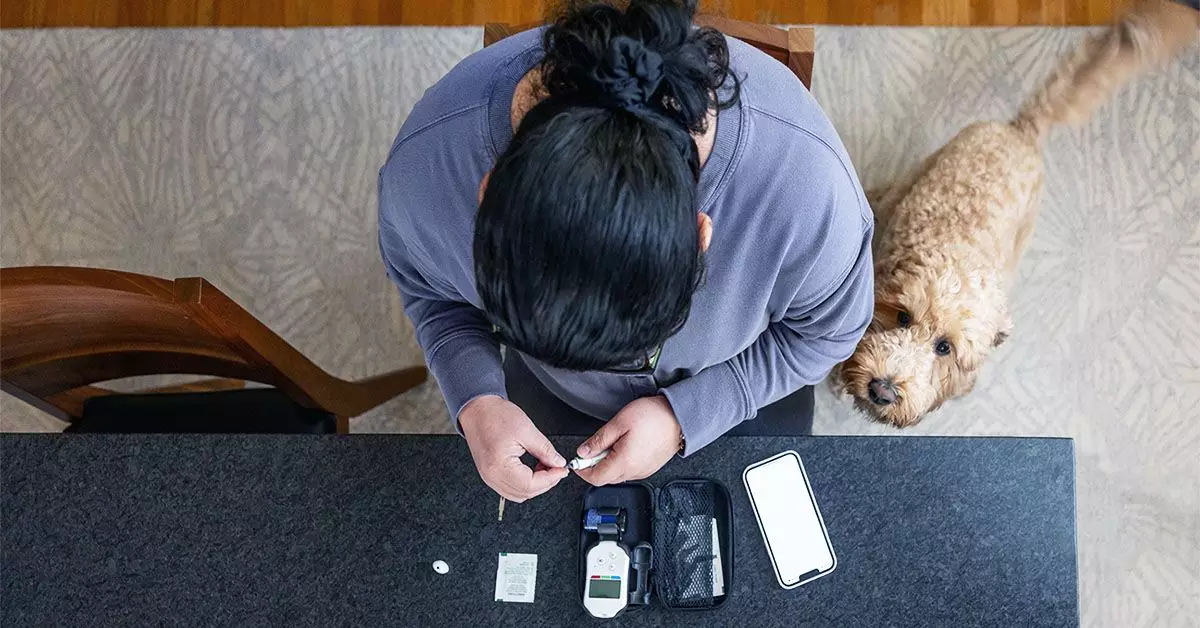Undergoing chemotherapy is often a formidable challenge for cancer patients, marked by a host of physical, emotional, and psychological stresses. One of the lesser-known yet significant issues that can arise during this treatment is the disruption of blood sugar levels. This concern can affect individuals with existing diabetes and those without, making it imperative to adopt proactive strategies for maintaining healthy glucose levels throughout the treatment process.
Chemotherapy can lead to hyperglycemia, where blood sugar levels exceed normal ranges, potentially resulting in severe complications. The situation is further complicated by the introduction of steroids—medications commonly prescribed to mitigate chemotherapy’s side effects—which are well-documented to elevate blood sugar. As a result, patients need to be particularly vigilant in managing their insulin levels and making dietary adjustments.
For patients already using insulin, it may be necessary to modify their dosage or type of insulin in response to the changes brought on by chemotherapy. Doctors often recommend regular consultations to assess individual situations and make appropriate adjustments. On the other hand, some patients diagnosed with diabetes for the first time during treatment may need to start insulin therapy to keep their blood sugar levels in check.
Injecting insulin can be performed using a pen, pump, or syringe; each method has its own advantages and intricacies that should be discussed with healthcare professionals. Those who have not previously dealt with diabetes will need guidance not just on how to use these tools, but also on timing their intake relative to meals to avoid exacerbating their blood sugar issues.
One of the primary challenges chemotherapy patients face is managing appetite and dietary intake, especially when experiencing symptoms like nausea. Despite these challenges, establishing a structured eating schedule is crucial for maintaining stable blood sugar levels. Patients are encouraged to opt for five to six smaller meals throughout the day rather than three larger ones. This approach can help prevent spikes in blood sugar while also accommodating a potentially diminished appetite.
Dietary choices should lean towards easily digestible foods. Avoiding strong odors and steering clear of greasy or spicy foods can make meal times more manageable. It is beneficial to maintain a food diary to track which foods may worsen nausea and to help identify triggers. Furthermore, relaxation techniques, such as deep breathing exercises, can enhance the dining experience, leading to healthier eating habits.
Hydration plays a multifaceted role in managing blood sugar levels. Water, being devoid of calories and carbohydrates, does not pose any risk of increasing blood glucose levels. Chemotherapy can induce dehydration, particularly on hot days or when patients experience vomiting due to treatment; thus, maintaining adequate fluid intake is crucial.
To make hydration more appealing, adding slices of fruit for flavor can help patients drink more water consistently. Drinking water first thing in the morning or before meals can further encourage this habit, contributing to better overall health and improved blood sugar management.
Exercise is a critical component for regulating blood sugar, but chemotherapy’s side effects can significantly hinder a patient’s ability to engage in regular physical activity. The Centers for Disease Control and Prevention recommend aiming for 150 minutes of moderate exercise weekly, which may seem daunting during treatment.
Breaking down this goal into manageable increments—30 minutes a day or even 10-minute walks—can help. Patients should consult with their healthcare team to devise a suitable exercise plan that fits their energy levels and overall health condition.
For those managing diabetes during chemotherapy, regular blood sugar monitoring is essential. Inconsistent glucose readings can make it difficult to assess the effectiveness of dietary and medical interventions for regulating blood sugar levels. Doctors may recommend daily checks, especially in the mornings or post-meals, to gather accurate data on how various factors affect their blood sugar.
Maintaining an open dialogue with healthcare providers regarding symptoms like weakness or sensory changes in the extremities can alert them to potential complications. The intersection of chemotherapy and glucose management is complex, underscoring the importance of collaborative care from a multidisciplinary team.
Managing blood sugar levels while undergoing chemotherapy requires a multifaceted approach that encompasses careful insulin management, dietary strategies, hydration, exercise, and consistent monitoring. Patients should remain engaged with their healthcare providers to ensure their management strategies are both effective and adaptable to their evolving circumstances. Such diligence is essential not only for controlling diabetes but also for optimizing overall cancer treatment outcomes. By taking proactive steps, patients can significantly improve their quality of life during what is often a highly challenging period.

